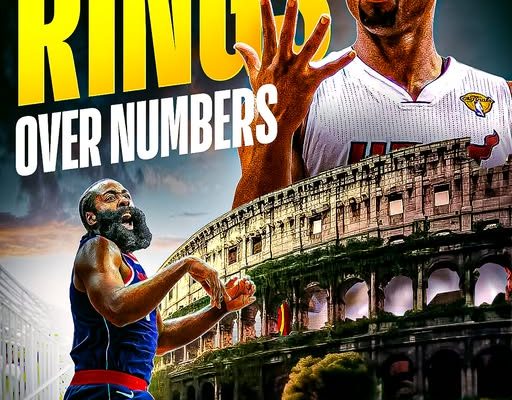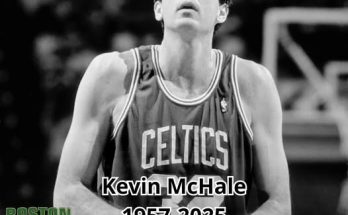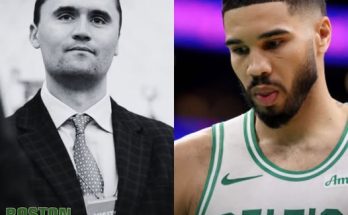Dwyane Wade has heard the noise. He’s seen the tweets, read the think pieces, and felt the pulse of NBA debates that never quite seem to rest. He knows his legacy is constantly measured, parsed, and compared. The name that most frequently comes up alongside his is James Harden. The argument goes back and forth: Harden with the scoring titles, MVP award, and gaudy numbers versus Wade with the championships, the defensive accolades, and the killer instinct on the biggest stages. It’s a debate that’s never just about stats or rings. It’s about impact, authenticity, the art of winning, and how greatness is defined. Through it all, Wade has remained unfazed—not arrogant, not dismissive, but quietly confident in what he brought to the game, and perhaps even more confident in what he didn’t have to say to prove it.
Wade was never the loudest. He wasn’t the guy campaigning for MVPs or crafting narratives around himself. He let the game speak. From the moment he arrived in the NBA in 2003 as the fifth overall pick out of Marquette, Dwyane Wade carried himself with a rare blend of humility and tenacity. He didn’t talk about being the best; he played like it. In a league that quickly became obsessed with volume and spectacle, Wade’s game was substance first. He didn’t launch threes at Harden’s clip, but he attacked relentlessly, hit midrange daggers, finished through contact, and elevated when it mattered most. He played both ends of the floor like his reputation depended on it, and in the process, he became one of the most respected players of his generation.
The numbers are the first thing that get thrown around in the debate. Harden’s regular season stats are staggering. He’s averaged over 30 points per game in multiple seasons, once even hitting the 36 PPG mark in 2018–19. He’s third all-time in three-pointers made and ranks among the league’s all-time scoring leaders. His usage rate, free throw attempts, and assist totals all scream of offensive dominance. But for all the numbers, there’s a certain hollowness that critics—and Wade himself, subtly—point to. Basketball isn’t a spreadsheet. It’s not a box score beauty contest. It’s about moments. It’s about pressure. It’s about what happens when the lights are brightest and the game slows down. In that theater, Wade was an artist. Harden? Still looking for his defining playoff masterpiece.
Wade’s resume gleams with that elusive element: clutch credibility. His 2006 Finals performance against the Dallas Mavericks remains one of the most dominant in NBA history. In just his third season, he averaged 34.7 points, 7.8 rebounds, and 3.8 assists in the Finals, dragging the Miami Heat from a 0-2 hole to four straight wins and the franchise’s first championship. He got to the line at will. He played with a fury that dared opponents to slow him down, and they couldn’t. That Finals run wasn’t just impressive—it was transcendent. It put him in the upper tier of NBA royalty before he turned 25. Harden, despite his MVP, his All-NBA selections, and all those points, hasn’t authored a similar playoff story. He’s had good series, but never the one that turns a great player into a legend.
That’s not to say Wade was without flaws. Injuries began to chip away at his explosiveness in his later years. His shooting range was never elite. But he adapted. He became smarter, more patient, more calculated. He didn’t pad stats during down years. He just found ways to win. With LeBron James and Chris Bosh in Miami, he adjusted his game to accommodate greatness. He stepped aside when needed and stepped up when called upon. That takes a rare kind of self-awareness—something that doesn’t always show up in stat comparisons but means everything in locker rooms and legacy discussions. Harden, by contrast, often found himself unable or unwilling to adapt. His game was and remains his game, for better or worse. That stubbornness, admired in some contexts, has also limited him on teams that needed more fluidity, more sacrifice.
Defense is another chasm in the comparison. Wade was a menace on that end. He’s the all-time leader in blocks by a guard, routinely taking on assignments that required both athleticism and grit. He made All-Defensive Teams and took pride in getting stops as much as getting buckets. Harden’s defensive effort, especially in his Houston years, was a frequent target of jokes and highlight reels for the wrong reasons. Though he’s improved in post defense and effort in later years, his reputation was largely set. That perception gap widens the legacy divide, at least in the eyes of those who value the full spectrum of basketball.
But legacy is not just built on individual moments or defensive accolades. It’s also about influence. Wade’s fingerprints are all over the NBA even now. From the way young guards attack the rim, to the culture he helped establish in Miami, to the mentorship he extended to players like Jimmy Butler and Donovan Mitchell, Wade’s impact endures. He wasn’t just a basketball player—he was a leader, a connector, and eventually, an ambassador for the game. He transitioned into retirement with grace, entering the Hall of Fame, becoming a minority owner of the Utah Jazz, and using his voice for causes larger than basketball. Harden’s legacy is still being written, but the contrast in post-playing influence—especially as Wade continues to grow his platform—is becoming more pronounced.
Still, Wade doesn’t need to scream it. He doesn’t need to throw shade or clap back on social media. His response to the comparisons has often been measured, a nod to the excellence of others without ever compromising belief in his own greatness. When asked about the Harden debate, Wade has consistently held his ground—not out of ego, but out of understanding. He knows what he did. He knows the championship grind. He knows what it’s like to stare down the league’s giants and emerge victorious. That kind of knowledge isn’t shaken by hot takes or statistical gymnastics. It’s earned, and it stays with you.
The debates will continue. They always do. Sports fans crave the hierarchy, the rankings, the barbershop arguments. Harden’s numbers will always draw defenders to his side of the aisle, and rightly so—he is a generational talent, a revolutionary scorer. But if the measure of a shooting guard is about more than numbers—if it’s about heart, defense, leadership, and championship DNA—then Wade’s place in history feels secure. He might not say it outright, but everything about the way he carries himself says it clearly: he doesn’t need to win the debate. He already won when it counted most.



